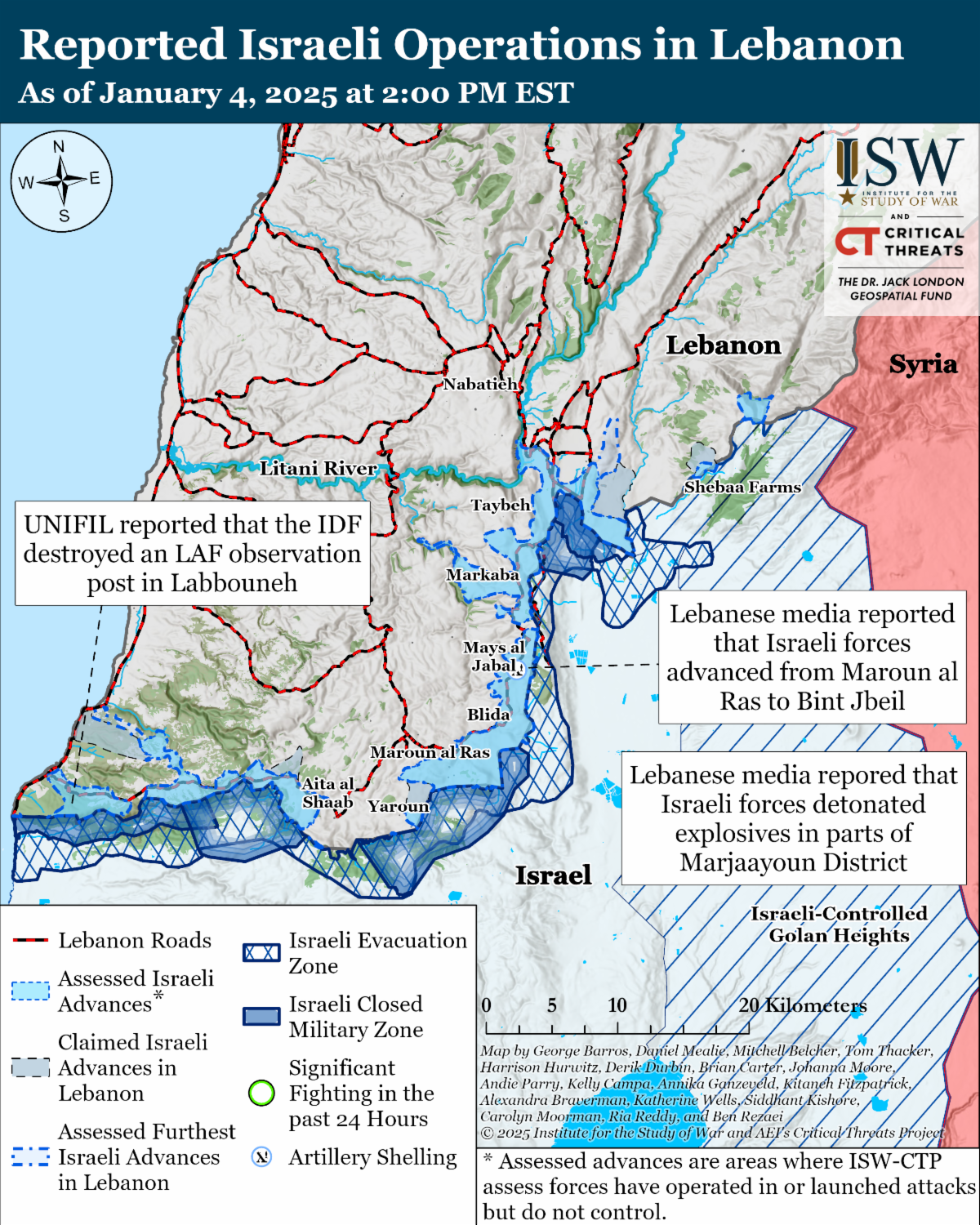An Alawite organization accused the Hayat Tahrir al Sham (HTS)-led interim Syrian government of failing to address instances of sectarian violence. The Alawite Islamic Forum in Syria released a statement on January 3 expressing its support for the interim Syrian government but argued that the interim government, though it has stated it seeks to respect all Syrians, has so far failed to back words with action. The group cited instances of sectarian-motivated attacks and killings in Homs, Hama, Latakia, Tartous, Damascus, and Daraa. HTS-led security forces have been conducting clearing operations targeting former regime members in these areas since December 28. The Alawite Islamic Forum in Syria rejected the interim government’s claims that acts of violence were perpetrated by individuals and argued that the prevalence of this violence suggested that the violence was a planned revenge campaign. The group added that the government must protect all Syrians by holding the perpetrators accountable, regardless of whether the perpetrators are loyal to the HTS-led interim government or engaging in individual actions against orders.
The HTS leader and interim government head of state Ahmed al Shara has attempted to assuage the Alawite's fears by highlighting the ways HTS and the interim government aim to protect minorities, but he has made only limited concrete, unambiguous steps. The HTS-led interim government has also thus far failed to prevent individual opposition fighters from targeting members of the Alawite community. Accusations of sectarian-motivated attacks can create a dangerous cycle of groups refusing to disarm because they fear for their safety, which then causes HTS-affiliated forces to target those groups that don’t disarm, thereby causing the groups to continue to accuse HTS of sectarianism. This dynamic could easily spiral out of control into larger armed conflict if left unchecked. The HTS-led government has a requirement to assuage the concerns of former regime loyalists and minorities, part of which requires controlling these sectarian narratives as and if they spread.
Key Takeaways:
- Sectarian Tension in Syria: An Alawite organization accused the Hayat Tahrir al Sham (HTS)-led interim Syrian government of failing to address instances of sectarian violence. The HTS leader and interim government head of state Ahmed al Shara has attempted to assuage the Alawite's fears by highlighting the ways HTS and the interim government aim to protect minorities, but he has made only limited concrete, unambiguous steps.
- Changes to Education in Syria: The interim Syrian government has begun to implement changes to the Syrian government without the consensus of a representative Syrian National Dialogue Conference.
- Syrian National Army-Syrian Democratic Forces Fighting: The Turkish-backed Syrian National Army (SNA) has advanced southeastward towards the Tishreen Dam since CTP-ISW's last data cutoff on January 3.
- Iranian Nuclear Negotiations: Iran is signaling its readiness to resume nuclear talks, probably in an attemptto prevent the E3 (the United Kingdom, France, and Germany) from triggering "snapback sanctions" later in 2025.
- Iranian-Syrian Relations: Araghchi also reaffirmed Iran's commitment to a unified Syrian government and emphasized cooperation with regional countries to ensure Syria's territorial integrity, which appears to be at odds with statements by other Iranian government officials, including the supreme leader.
- IDF in Lebanon: An Israeli media and a Lebanese media report suggested that the IDF may extend its deployment in southern Lebanon by an additional 30 days due to the Lebanese Armed Forces (LAF) failure to dismantle Hezbollah infrastructure there. Lebanese Hezbollah Secretary General Naim Qassem threatened to break the ceasefire agreement in a January 4 speech.
| 






 [ISW] 이란 업데이트, 2025년 1월 5일
[ISW] 이란 업데이트, 2025년 1월 5일
 [ISW] 이란 업데이트, 2025년 1월 3일
[ISW] 이란 업데이트, 2025년 1월 3일